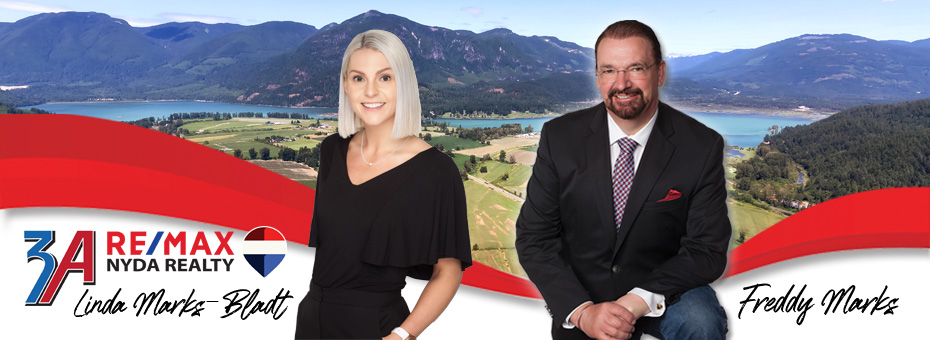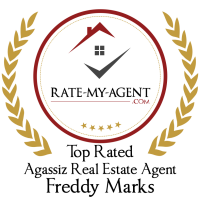Buyers FAQs
We have Answers!

Whether you're a first-time buyer or an experienced real estate investor in British Columbia, it's always a good idea to brush up on your real estate steps and processes before you begin your property search. Ensuring that you are a prepared and informed buyer, able to make confident decision will help you attain your estate goals.
![]()
First Step FAQs
1. Where Should I Start the Process?
- Organize and review your finances. Set a budget and figure out what you will be able to afford for a down payment. Use our handy mortgage calculator to see what a monthly mortgage payment might look like for you.
- Start researching the many communities in and around to see which might be best for you.
- If you're a first-time buyer, you might want to get more information first!
2. How Do I Know What to Look for in a Property?
- This is up to you! Take some time to decide what's important to you - proximity to amenities, school districts, yard sizes, noise, commute, highway access. This will help you find a neighbourhood.
- Review home/property features you might want and those you'll need, from size to style to overall condition. Having a good idea of what you're looking for will save you time and tours of homes that don't meet your criteria.
- Browse our listings, or start searching properties by amenities and features.
3. Why Should I Use a Realtor?
- A good Realtor can guide you through the financial and legal complexities of the real estate process.
- A local Realtor will be an expert and can provide vital insight into its neighborhoods and communities.
- A Realtor can help you find the right price range for your income and finances and can explain the pros and cons of different types of mortgages.
- A Realtor will answer all your questions and guide you through the complicated paperwork.
4. Where and How Can I Get a Loan?
- Mortgage loans are typically available through banks, credit unions, private mortgage companies, and government state lenders.
- Your Realtor can help connect you with lenders. You can also shop for lenders on your own, making sure you take some time to search around and compare rates. Calling local government agencies can also be a good idea to find out more about programs that might be available to you.
5. What if I Have Bad Credit or No Down Payment?
- You might qualify for a federal mortgage program or local home buying assistance program.
- The Federal Housing Administration (FHA) helps home buyers by offering insured loans. This means that if the buyer defaults, the lender will still get their money. Insured loans encourage lenders to work with more buyers regardless of their credit or available down payment.
- Many state and local governments offer additional programs for buyers who meet various criteria or are buying within individual communities.
- The Department of Housing and Urban Development (HUD) also offers many assistance programs to home buyers.
6. Once I Find My Property, What Will I Have to Pay Up Front?
- Earnest money: This is the "security deposit" you pay when you submit your offer to prove to the seller that you are serious. After your offer is accepted, it is applied to your down payment or closing costs.
- Down Payment: This is a percentage of the cost of your home. The amount will depend on your loan; government programs can help you decrease this amount.
- Closing Costs: These are typically low for buyers and represent the fees associated with paperwork and lender charges.
7. What Other Costs Will I Pay?
- Other costs can include utilities, HOA or condo fees, and property taxes - which are typically included in your mortgage payment.
- Ask your Realtor about additional fees associated with your particular home, community, or neighbourhood.
![]()
Answers to the Top 10 Current Buyers' Questions
1. Is now a good time to buy or sell a home?
Current market conditions are shifting toward buyer favour, especially with a slight easing of mortgage rates and rising inventory. Reports indicate that sellers are beginning to discount prices but are still benefiting from overall strong demand in many markets. As the market becomes more balanced, potential buyers are seeing better options and negotiating power.
2. How do mortgage interest rates affect home prices and my monthly payments?
Mortgage rates significantly impact how much you’ll pay monthly and the overall home price you can afford. As rates rise, monthly payments increase, making homes less affordable, which may also cool home price growth. Recent patterns show that even small fluctuations in rates can lead to changes in home prices and purchasing behaviour. Existing higher rates lead to slowing sales and downward price pressure on homes in BC, creating a buyer's market.
3. How much do I need for a down payment?
In BC, the minimum down payment is:
- 5% for homes under $500,000.
- 5% on the first $500,000 plus 10% on the remainder for homes priced between $500,001 and $1,000,000.
- 20% for homes above $1,000,000.
Particularly, buyers putting down less than 20% will require mortgage default insurance.
4. What is my home worth in today's market?
Home values in BC are currently experiencing fluctuations. The diverse regions of BC have their own unique market conditions, you can find posted MLS® average home price statistics by region on the BC Real Estate Associations Market at a glance web page.
5. How long does it take to buy or sell a home?
The timeline can vary for both, but selling a home might take anywhere from 30 to 180 days, depending on market conditions. Buyers can expect a similar time-frame to find and close on a house. A balanced market may lead to quicker transactions. If you have a deadline to be moved in or moved out of an existing home, we can help you be strategic with pricing and marketing expertise.
6. What are the current real estate market trends?
BC’s housing market is showing signs of stabilization after a turbulent previous years, driven by external economic factors. Inventory levels are rising, giving buyers more choices, market predictions indicate home prices may remain flat or decline.
7. Should I sell before buying or buy before selling?
It generally depends on personal circumstances and market conditions. However, given the current buyer's market, selling before buying could provide a clearer financial position before making your next purchase.
8. What does the home buying/selling process involve, and what are the closing costs?
The home buying process involves:
- Pre-qualification for a mortgage.
- Finding a home.
- Making an offer.
- Home inspections and due diligence.
- Closing the sale.
Closing costs typically include legal fees, property transfer tax, and mortgage insurance (if applicable). These can range from 1.5% to 4% of the purchase price.
9. What should I look for in a real estate agent?
Look for agents with:
- Local market knowledge
- Experience in your price range
- Strong negotiation skills
- Positive client reviews
A good agent will be proactive in communication and transparent about market conditions.
10. Is real estate still a good investment in the future?
While BC's market faces challenges like fluctuating prices and affordability issues, long-term investment in real estate remains viable. Factors like population growth and ongoing demand in desirable areas could generate value appreciation over time.
![]()

